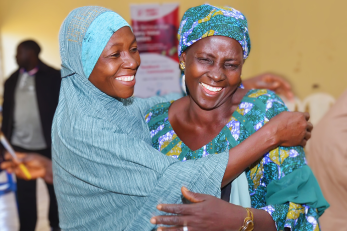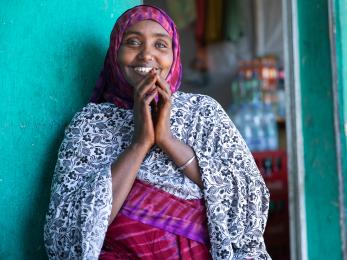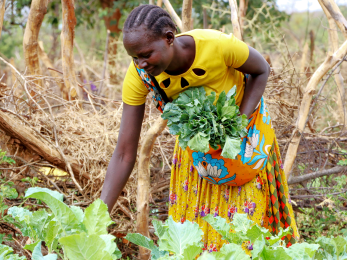Breaking Down Barriers: How Women’s Peace Groups Help Advance Gender, Peace, and Security in Nigeria

Conflicts in Nigeria have become increasingly complex over time, but effective and full implementation of the Women, Peace, and Security (WPS) agenda at the local level can advance locally-led, gender responsive, and inclusive peacebuilding efforts. As Nigeria is currently developing its third National Action Plan (NAP) for the implementation of UNSCR 1325 on the WPS agenda, valuable lessons regarding the integral role of women’s groups in addressing WPS priorities and the integration of Gender Equality and Social Inclusion (GESI) considerations should be prioritised.
To contribute to these discussions about the role of women’s groups in gender, peace, and security (GPS) efforts, Mercy Corps conducted a mixed-methods study focusing on the experiences of the women’s groups – the Women Critical Discussion Groups (WCDGs), and the Women Peacebuilding Councils (WPCs) – established by Mercy Corps and the African Radio Drama Association (ARDA) through the USAID-funded Community Initiatives to Promote Peace (CIPP) Programme. By highlighting the unique characteristics of the WCDGs and WPCs, the research finds the following that can inform Nigeria’s next NAP:
- Women’s groups fill important gaps that other peace and security actors cannot fill, such as helping young women and young men who drop out of school and increasing the visibility of women peacebuilders by advocating for their meaningful inclusion and leadership opportunities.
- Collaboration and support from other peace and security actors, particularly community leaders and other influential male actors, contribute to the success of these women’s groups.
- Effective GPS efforts prioritise youth engagement and intersectionality, including engagement with at-risk youth and their parents and other youth influencers to facilitate safe and inclusive communities for women and girls and sustain peace efforts.
Specifically, the Nigerian Government and GPS actors contributing to Nigeria’s next NAP should:
- Mobilise resources for women’s groups to lead in the development and implementation of community-level peace and development action plans.
- Incorporate strategies for accountability for monitoring progress on implementation of the NAP, State Action Plans (SAPs), and Local Action Plans (LAPs), such as regular documentation and reporting by WPS actors.
- Prioritise youth engagement with both young women and young men as an integral component of addressing current and future threats to WPS, GPS, and GESI.
- Allocate sufficient resources for the implementation of the NAP, SAPs, and LAPs, including knowledge exchange around best practices and effective GESI mainstreaming in peace and security processes.
Additionally, civil society actors in Nigeria should:
- Include community-level women’s groups in NAP drafting processes at all levels.
- Encourage the development and support of women’s groups to participate in community, state, and national level governance structures and processes, including by providing women’s groups with funding and mentoring opportunities.
- Promote education and awareness on the value of women’s groups and gender inclusion in peacebuilding by highlighting the expertise of women’s groups in community-level conflict mitigation, the importance of transforming harmful gender norms, and the importance of strengthening collaborations between grassroot women’s groups and national/sub-national peacebuilding mechanisms.
- Connect peacebuilding to other sectors, especially economic opportunities.

